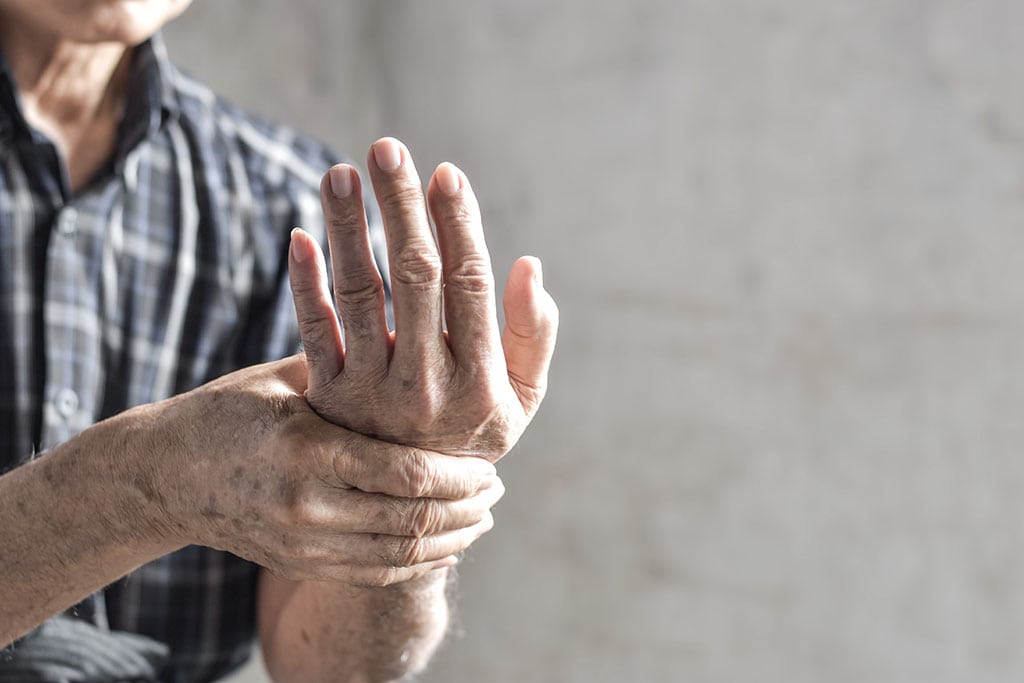Have You Experienced One of These Common Causes of Osteoarthritis?
Several factors contribute to the development of osteoarthritis. These include:
- Age – As we mentioned earlier, osteoarthritis becomes more common as people age. This is because the cartilage gradually wears down the longer you live.
- Genetics–Does osteoarthritis run in your family? If so, you may be at greater risk of developing the disease.
- Joint Injuries–Any fractures or torn ligaments place you at greater risk.
- Obesity–Excess weight places more pressure on your joints, particularly your knees. Repetitive Movements–If you have a job that requires repetitive motion, you’re more likely to develop osteoarthritis.
Early Indicators of Osteoarthritis
Do you have pain after sitting for a long time? How about after activities such as walking or navigating stairs?
If you have osteoarthritis, pain and stiffness are all too familiar after these situations. As the day continues, you may notice your pain getting worse. Rest can help, but ultimately osteoarthritis will progress as the cartilage continues to wear down.
For many people—especially those aged 45 and older—osteoarthritis typically begins as a pain in their knees.
Osteoarthritis Makes It Difficult to Enjoy The Activities You Once Did
If you have symptoms of osteoarthritis, then you know the devastating and often debilitating effect it can have on your life. It makes it harder to enjoy the activities you once did, and as the disease progresses, it becomes more challenging.
That’s why timely, comprehensive treatment is so vital, so we can provide relief before the deterioration worsens.
Do You Have Any of These Symptoms of Osteoarthritis?
The symptoms of osteoarthritis can vary depending upon the individual, but common signs include:
- Joint Pain
- Swelling
- Joint Stiffness
- A Grating Sensation
- Reduced Range of Motion
How Is Osteoarthritis Treated?
There is no cure for osteoarthritis, but we can tailor a treatment plan to help you manage its symptoms. We’ll work closely with you step-by-step on your journey and find solutions.
Some treatment options include:
- Lifestyle Modifications: Weight management can reduce the amount of stress placed upon your joints, reducing your pain. We’ll work with you to establish a treatment plan.
- Physical Therapy: Exercises can strengthen your muscles, supporting affected joints.
- Medications: We frequently recommend over the counter, anti-inflammatory medicines (NSAIDs). Topical creams may also help. We’ll provide a list of medicines to help alleviate your pain.
- Joint Injections: If more conservative treatments aren’t successful, steroid shots may resolve pain, providing temporary relief.
- Assistive Devices: Have you considered using splints or braces? These can alleviate the strain on your joints.
- Surgery: We only recommend a joint replacement for osteoarthritis if previous treatments have been unsuccessful.
When Should You See a Doctor About Your Osteoarthritis?
Perhaps you initially thought your joint pain and stiffness were just a natural part of aging. The truth is that any consistent pain should always be taken seriously. We encourage you to schedule an appointment with our board-certified rheumatologist if you are experiencing:
- Severe Symptoms
- Pain in Multiple Joints
- Difficulty With Everyday Activities
- Persistent Pain
Osteoarthritis can make it problematic to do simple, daily tasks. Even something as basic as walking the dog or bending to pick something up can bring pain and stiffness. This is why you shouldn’t delay in getting treatment. We can help you before osteoarthritis progresses
Do You Have Signs Of Osteoarthritis? Ready to Get Your Life Back? RMG Rheumatology Has the Comprehensive Care You Need
Osteoarthritis is not only painful–it can be debilitating. It devastates your quality of life.
You simply don’t have to put up with it.
There are solutions, and by recognizing the symptoms of osteoarthritis and scheduling an appointment means we can help you return to the activities you enjoy.
At Capital Rheumatology, we’re dedicated to helping you relieve the pain, stiffness and aches associated with osteoarthritis. Contact us at 919-341-3603 to schedule an appointment.



